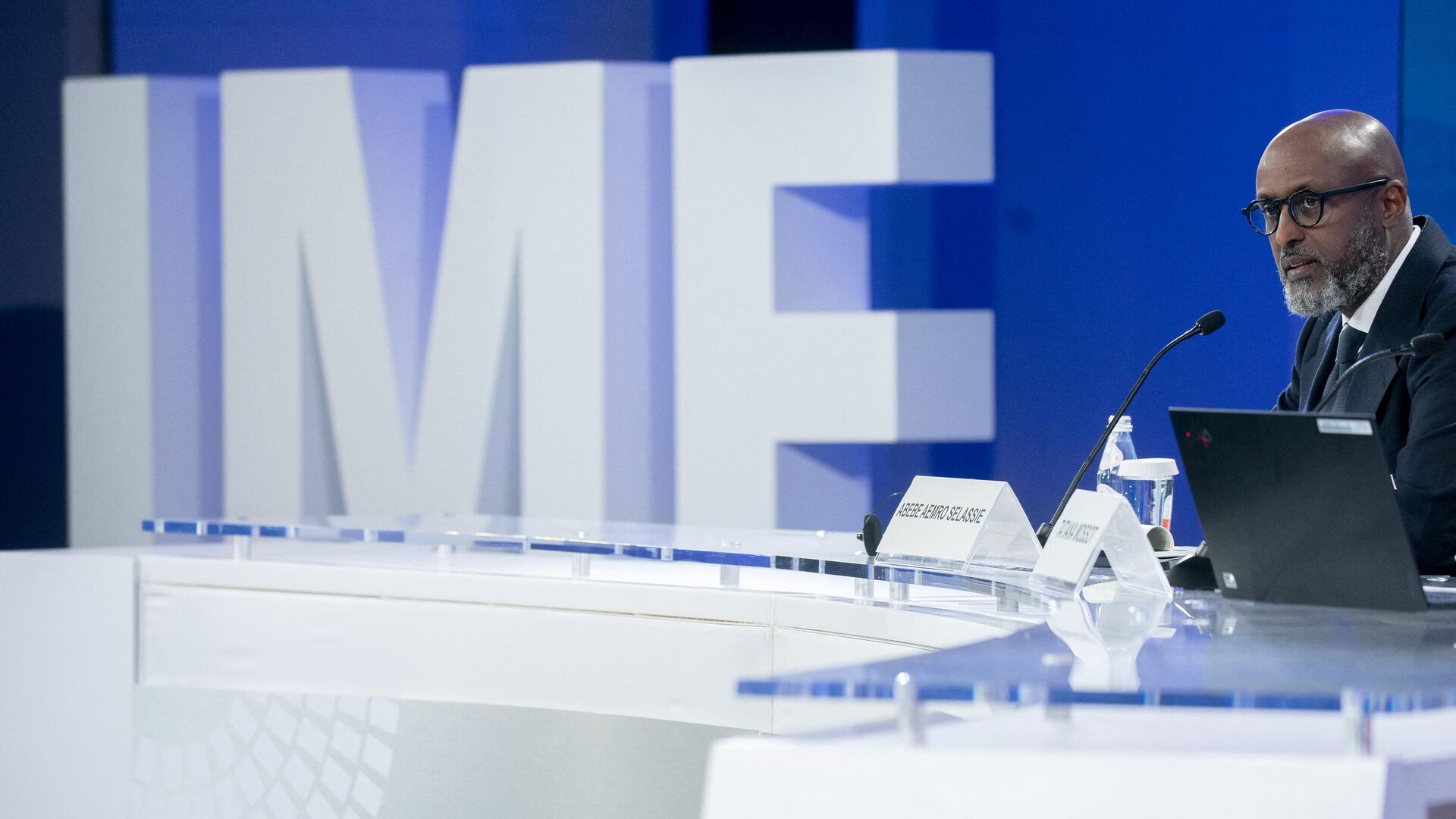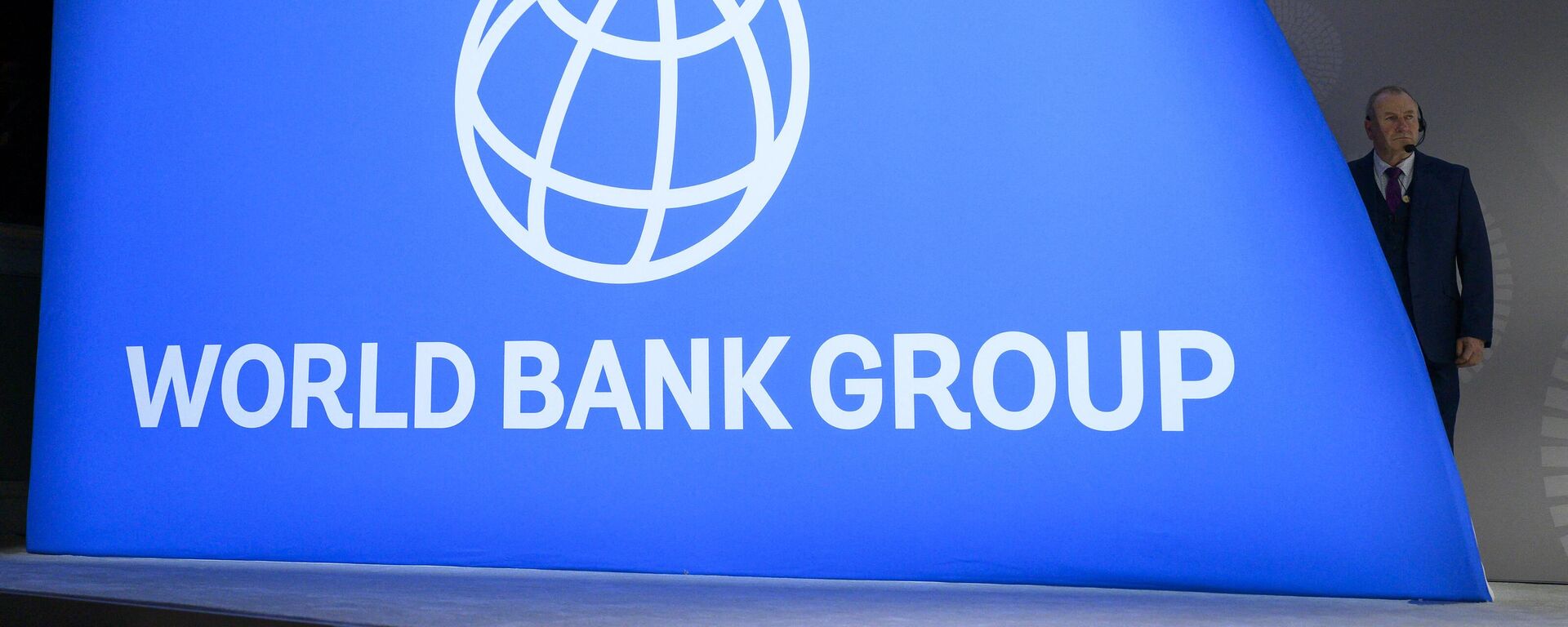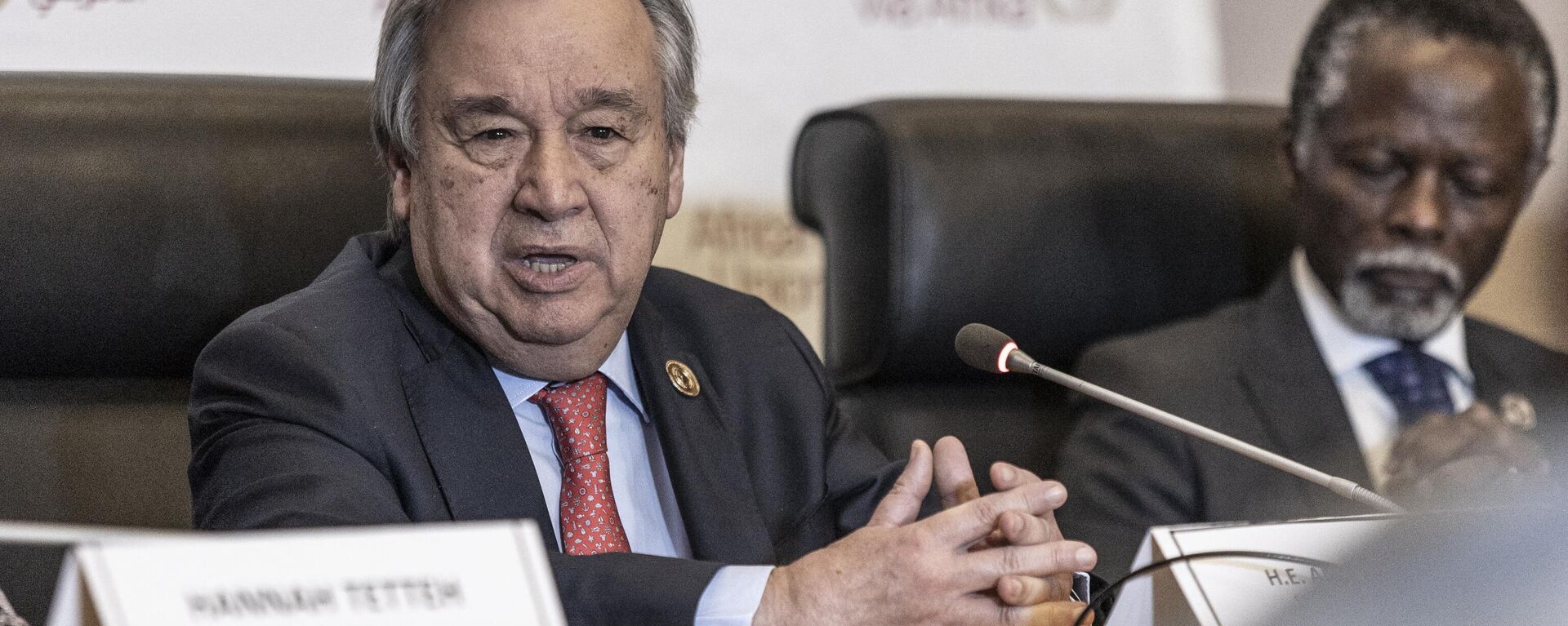https://en.sputniknews.africa/20230415/imf-warns-of-massive-funding-crisis-causing-significant-economic-slowdown-in-africa-1058618282.html
IMF Warns of 'Massive Funding Crisis' Causing Significant Economic Slowdown in Africa
IMF Warns of 'Massive Funding Crisis' Causing Significant Economic Slowdown in Africa
Sputnik Africa
Sub-Saharan Africa is expected to experience a significant slowdown in growth to 3.6 percent in 2023 due to a "massive funding crisis" resulting from the depletion of aid and limited access to private finance, the IMF warned.
2023-04-15T11:07+0200
2023-04-15T11:07+0200
2023-08-03T10:44+0200
international monetary fund (imf)
funding
economic growth
crisis
sub-saharan africa
economy
https://cdn1.img.sputniknews.africa/img/07e7/04/0f/1058618984_0:0:3072:1728_1920x0_80_0_0_f39ab161387e762d7d8f434948668f39.jpg
Sub-Saharan Africa is expected to experience a significant slowdown in growth to 3.6 percent in 2023 due to a "massive funding crisis" resulting from the depletion of aid and limited access to private financing, the International Monetary Fund (IMF) warned in a press briefing on Friday.According to the IMF, if no action is taken, this lack of funding could lead to a reduction in fiscal resources for crucial development areas such as health, education, and infrastructure, hindering the region's potential for growth.As reported in the IMF's Regional Economic Outlook report titled "The Big Funding Squeeze", the increased interest rates have resulted in higher borrowing costs for sub-Saharan African countries, with not a single nation in the region successfully raising funds through dollar bond sales in the past year.Selassie noted that even before the COVID-19 pandemic, African countries were already struggling with budget deficits and high levels of debt, which limited their ability to provide relief measures or stimulate their economies. The pandemic worsened the situation, and now the tightening of monetary policy in major economies is causing African currencies to depreciate and shutting them out of debt markets. Moreover, public debt and inflation are at their highest levels in decades, affecting the poorest populations the most, the IMF report said.Selassie emphasized the need for reforms to strengthen the resilience of economies, such as mobilizing more domestic revenues. He also suggested policies to insulate domestic economies from the external environment, including adjusting exchange rates and interest rates to reduce inflation.The African leaders have repeatedly called on the international community to relieve African nations' debt and increase investments in the continent in order to counter climate change and address the slowdown in economic growth, among other issues. At the same time, they have expressed their disappointment over the amount of support the international community has provided so far, saying that much-needed assistance has yet to be delivered, while many countries instead are subject to political interference from foreign players.In mid-February, UN Secretary-General Antonio Guterres stated that debt-laden African countries are forced into unfair deals by the international financial system, which turns them down when they ask for debt relief and charges "extortionate" interest rates.
https://en.sputniknews.africa/20230415/climate-focus-shouldnt-dilute-africa-development-needs-world-bank-official-says-1058615228.html
https://en.sputniknews.africa/20230218/1058618430.html
Sputnik Africa
feedback@sputniknews.com
+74956456601
MIA „Rossiya Segodnya“
2023
Muhammad Nooh Osman
https://cdn1.img.sputniknews.africa/img/07e7/04/0a/1058467512_0:0:1280:1280_100x100_80_0_0_ec723833bcbfcaed2e21952965ad99e4.jpg
Muhammad Nooh Osman
https://cdn1.img.sputniknews.africa/img/07e7/04/0a/1058467512_0:0:1280:1280_100x100_80_0_0_ec723833bcbfcaed2e21952965ad99e4.jpg
News
en_EN
Sputnik Africa
feedback@sputniknews.com
+74956456601
MIA „Rossiya Segodnya“
Sputnik Africa
feedback@sputniknews.com
+74956456601
MIA „Rossiya Segodnya“
Muhammad Nooh Osman
https://cdn1.img.sputniknews.africa/img/07e7/04/0a/1058467512_0:0:1280:1280_100x100_80_0_0_ec723833bcbfcaed2e21952965ad99e4.jpg
africa, economic growth, funding crisis, imf, investments, debt levels, economic activity, covid-19 impact, foreign investments, world bank, debt crisis, africa debt, international monetary fund, funding crisis, africa funding crisis,
africa, economic growth, funding crisis, imf, investments, debt levels, economic activity, covid-19 impact, foreign investments, world bank, debt crisis, africa debt, international monetary fund, funding crisis, africa funding crisis,
IMF Warns of 'Massive Funding Crisis' Causing Significant Economic Slowdown in Africa
11:07 15.04.2023 (Updated: 10:44 03.08.2023) Muhammad Nooh Osman
Writer/Editor
According to the Bretton Woods agency, the crisis has resulted in a decrease in investments and a rise in debt levels, which, in turn, has led to a decline in economic activity in the African continent.
Sub-Saharan Africa is expected to experience a significant slowdown in growth to 3.6 percent in 2023 due to a "massive funding crisis" resulting from the depletion of aid and limited access to private financing, the International Monetary Fund (IMF) warned in a press briefing on Friday.
According to the IMF, if no action is taken, this
lack of funding could lead to a reduction in fiscal resources for crucial development areas such as health, education, and infrastructure, hindering the region's potential for growth.
As reported in the IMF's Regional Economic Outlook
report titled "The Big Funding Squeeze", the increased interest rates have resulted in higher borrowing costs for sub-Saharan African countries, with not a single nation in the region successfully raising funds through dollar bond sales in the past year.
"I wish I was bearing better news, but unfortunately, we're expecting growth to decelerate from 3.9 percent to 3.6 percent in 2023. And this to a large extent reflects the big funding squeeze countries are facing at the moment." Abebe Aemro Selassie, Director of the IMF’s African Department, told the media on Friday during the IMF and World Bank spring meetings in Washington.
Selassie noted that even before the COVID-19 pandemic, African countries
were already struggling with budget deficits and high levels of debt, which limited their ability to provide relief measures or stimulate their economies. The pandemic worsened the situation, and now the tightening of monetary policy in major economies is causing African currencies to depreciate and shutting them out of debt markets.
Moreover, public debt and inflation are at their highest levels in decades, affecting the poorest populations the most, the IMF report said.
"Any one of these shocks individually would’ve been considered a once-a-multi-decade shock," Selassie said. "Definitely, in terms of macroeconomic challenges, this is by far the most difficult period I think from the turn of the century."
Selassie emphasized the need for reforms to strengthen the resilience of economies, such as mobilizing more domestic revenues. He also suggested policies to
insulate domestic economies from the external environment, including adjusting exchange rates and interest rates to reduce inflation.
According to Selassie, the IMF has contributed significantly by providing financial assistance to the region. He stated that the IMF disbursed over $50 billion between 2020 and 2022, which is more than double the amount provided in any 10-year period since the 1990s. Additionally, he mentioned that the IMF has lending arrangements with 21 countries as of March 2023, with more requests currently under review.
The African leaders have repeatedly called on the international community to relieve African nations' debt and increase investments in the continent in order to counter climate change and address the slowdown in economic growth, among other issues.
At the same time, they have expressed their disappointment over the amount of support the international community has provided so far, saying that much-needed assistance has yet to be delivered, while many countries instead are subject to political interference from foreign players.
In mid-February, UN Secretary-General Antonio Guterres stated that debt-laden African countries are forced into unfair deals by the international financial system, which turns them down when they ask for debt relief and charges "extortionate" interest rates.
"The global financial system routinely denies them [developing countries] debt relief and concessional financing while charging extortionate interest rates," Guterres said. "I’ve called [...] to radically transform the global financial architecture. The beating heart of the system, the every decision mechanism and process should be centered in the needs of developing countries."




